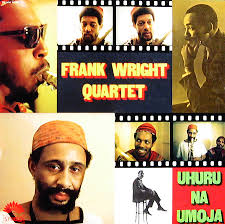Reception
In his review for AllMusic, Sean Westergaard states "Wright's gruff tenor contrasts nicely with Howard's sweeter tone, which is not really less intense, just less ferocious.. Fans of '60s-style 'energy music' should really check this out." [2]
The Village Voice's Francis Davis wrote that Wright "blows with such conviction and spirit you find yourself being carried right along with him. It's free jazz at its most rapturous and hell-bent." [4]
Clifford Allen of Paris Transatlantic called the album an excellent snapshot of "a regularly working free jazz group at the peak of its form," and commented: "the pieces on Uhuru Na Umoja are generally short and fall far from the side- or album-length compositions that one usually finds on a typical free jazz blowing session from this period... one assumes that Wright performances weren't always endless blowouts, but rather explorations of colors and shapes, not to mention lengths." [5]
Writing for The Live Music Report, David Fujino called Noah Howard's compositions "simple incantatory tunes... that function as excellent spurs to creative group improvisation where melody and new melody combine and recombine into a progressively renewing albeit unfamiliar unity." [6]
This page is based on this
Wikipedia article Text is available under the
CC BY-SA 4.0 license; additional terms may apply.
Images, videos and audio are available under their respective licenses.

